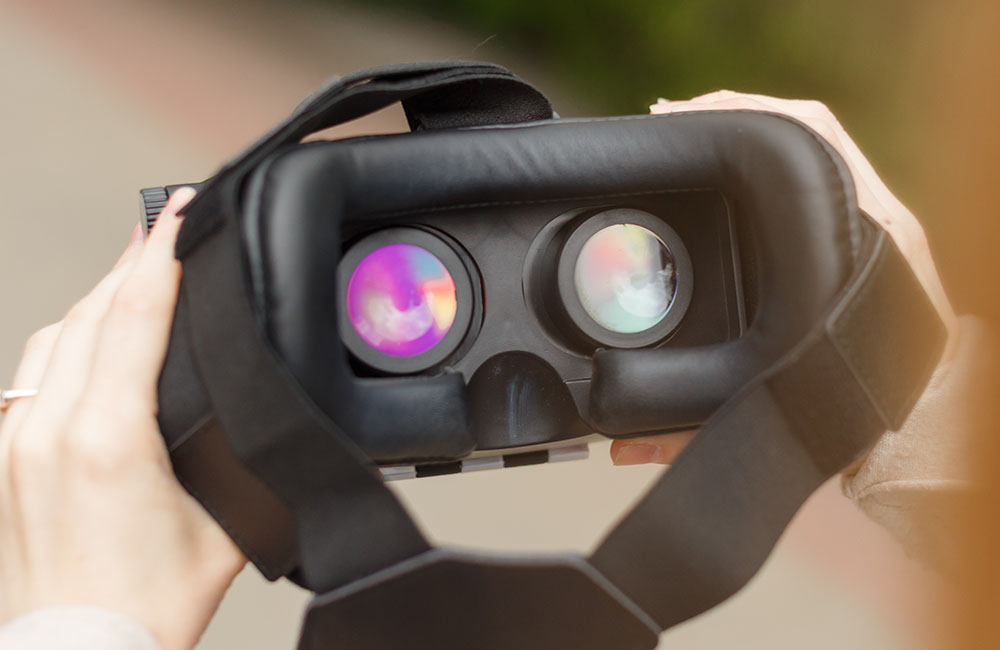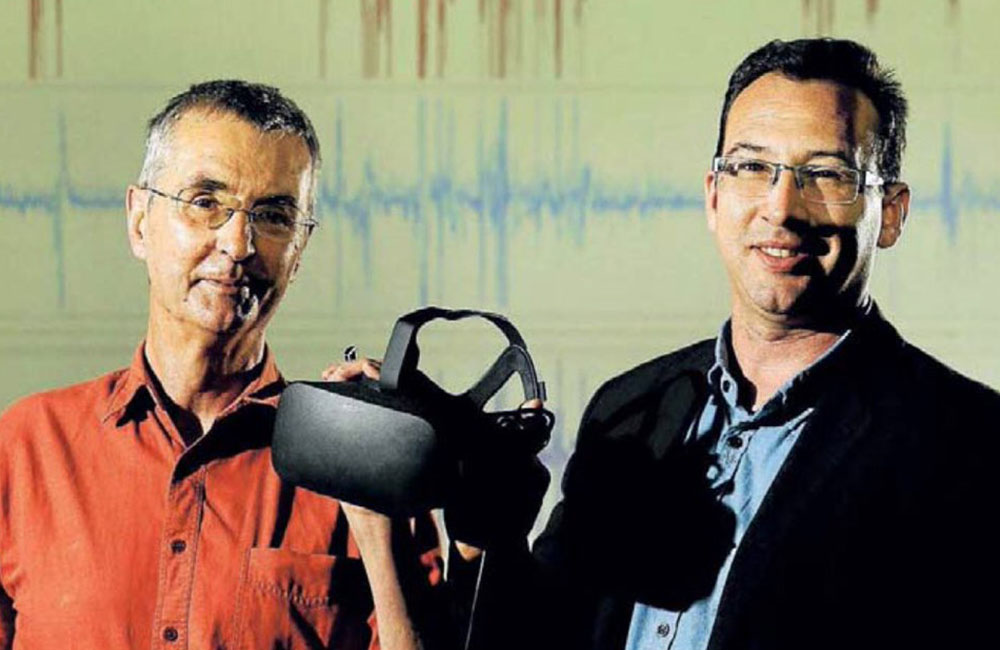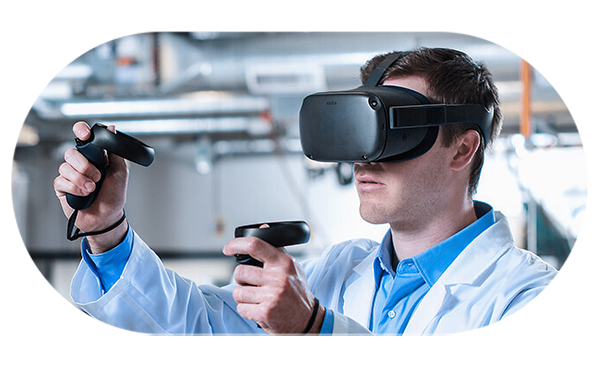Research
An Integrated Research Approach
The Centre for Advanced Training Systems (ATS) has a strong research focus, which is applied to all aspects of our activities.
Our research approach is integrated into all phases of project development, from initial project conception through to resource delivery.
Within each project we collect data and integrate the following research aspects:
Training Tool Development
We integrate evidence-based and scientifically-established concepts to address unmet needs, which consider individual training outcomes, trainer objectives and organisational requirements.
Specific Aspects:
- User attitudes & concerns
- Existing resources
- Technology options & features
- Organisation capacity & resources
User Testing & Feedback
We take an active approach to gather data from users throughout the development process and to assess the final training tool.
Specific Aspects:
- User experience
- Tool optimisation
- Training efficacy & functionality
Dissemination & Implementation
We work with organisations to ensure that the new training tool is accessed by users to deliver outcomes.
Specific Aspects:
- Hardware acquisition & logistics
- Dissemination strategy
- Supporting documentation & content
- User analytics & uptake
Further, we conduct scientific research studies to improve and optimise teaching and learning within The University of Newcastle and our partner organisations.
Our focus is on addressing specific questions, to improve our understanding of how people learn and interact with technology. We directly test and compare different training delivery systems to identify the benefits and disadvantages of each modality. As experts in physiological stress, we also investigate the physiological effects of technology on the body during teaching and learning (e.g. heart rate, respiratory rate and physiological arousal).
Latest News

The sickening truth about virtual reality
The sickening truth about virtual reality A new study has proven that cybersickness, which is caused by exposure to virtual reality (VR), may be the same clinical condition as ‘classic’ motion sickness caused by travelling. Read more via UoN News
Motion sickness vs. cybersickness: Two different problems or the same condition?
Motion sickness vs. cybersickness: Two different problems or the same condition?Contrary to previous research, severe motion sickness and cybersickness, a type of motion sickness that stems from exposure to virtual reality, may be considered the same clinical...

VR key to increasing resilience in Australian troops
VR key to increasing resilience in Australian troops In the hopes of utilising advanced tools to enhance resilience, a first-of-its kind project led by the University of Newcastle (UON) will explore Virtual Reality (VR) training as a new method to ensure Australian...
Examples of Current & Ongoing Research
- Evaluation of an App-Delivered Psychological Flexibility Skill Training Intervention for Medical Student Burnout and Well-being.
- Comparing approaches for the selection and deployment of extended reality teaching applications.
- Effectiveness of respiratory control training using a biofeedback-enabled, virtual reality training module. How many sessions are required to reach competency? How long are skills retained?
- What is the benefit of an immersive learning environment for controlled breathing training? Comparison of skills acquisition of controlled breathing using an immersive VR environment and a 2D screen-based approach.
- Can procedural training in VR reduce the number of iterations required for procedural training in the real world?
- How stressful is virtual reality? Correlating immersion, fidelity, performance and threat in mixed-reality applications with physiological responses.
- Should XR-based technologies be integrated into tertiary education? How? Moving past early adopter enthusiasm: General attitudes and concerns towards mixed-reality technology as a teaching tool within the University system.
- How can XR-based technologies be integrated and supported at an institutional level? Scaling mixed-reality technology as a sustainable and supported teaching tool across multiple teaching courses and classes.

Example Publications
-
TACTICS VR Stroke Telehealth Virtual Reality Training for Health Care Professionals Involved in Stroke Management at Telestroke Spoke Hospitals: Module Design and Implementation Study. Maltby S, et al., JMIR Serious Games. 2024
-
Evaluation of a Virtual Reality Platform to Train Stress Management Skills for a Defense Workforce: Multisite, Mixed Methods Feasibility Study. Kluge MG, et al., J Med Internet Res. 2023
-
Evaluation of an App-Delivered Psychological Flexibility Skill Training Intervention for Medical Student Burnout and Well-being: Randomized Controlled Trial. Ditton E, et al., JMIR Ment Health. 2023
-
Comparing approaches for selection, development and deployment of extended reality (XR) teaching applications. Kluge et al., 2022. Education Information Technology.
- Development and pilot implementation of TACTICS VR: A virtual reality-based stroke management workflow training application. Maltby et al., 2021. Plos One.
- Evaluation of an app-delivered psychological flexibility skill training intervention for medical student burnout and well being: randomized controlled trial. Ditton et al., 2022. JMIR Mental Health.
-
Development of a modular stress management platform (Performance Edge VR) and a pilot efficacy trial of a bio-feedback enhanced training module for controlled breathing. Kluge et al. 2021. PLoS ONE.
- Consideration of using virtual reality for teaching neonatal resuscitation to midwifery students. Williams et al., 2018, Nurse Education Practice.
- A comparative study of cybersickness during exposure to virtual reality and “classic” motion sickness: are they different? Gavgani et al. 2018. J Appl. Physiol.
- Cybersickness-related changes in brain hemodynamics: A pilot study comparing transcranial Doppler and near-infrared spectroscopy assessments during a virtual ride on a roller coaster. Gavgani et al. 2018. Physiol. Behav.
- Effects of visual flow direction on signs and symptoms of cybersickness. Gavgani et al. 2017. PLoS ONE.
- Profiling subjective symptoms and autonomic changes associated with cybersickness. Gavgani et al. 2017. Auton. Neurosci.
- Cybersickness provoked by head-mounted display affects cutaneous vascular tone, heart rate and reaction time. Nalivaiko et al. 2015. Physiol Behav.
If you are interested in developing a specific training programme in collaboration with the Centre for Advanced Training Systems (ATS), we would like to hear from you. Please send us an email or access the Contact Us page to get in touch with our team.
Designing, Developing and Implementing Next Generation Training

Mailing list signup
Join our mailing list to receive information on Centre updates and to be involved in testing of new applications.

